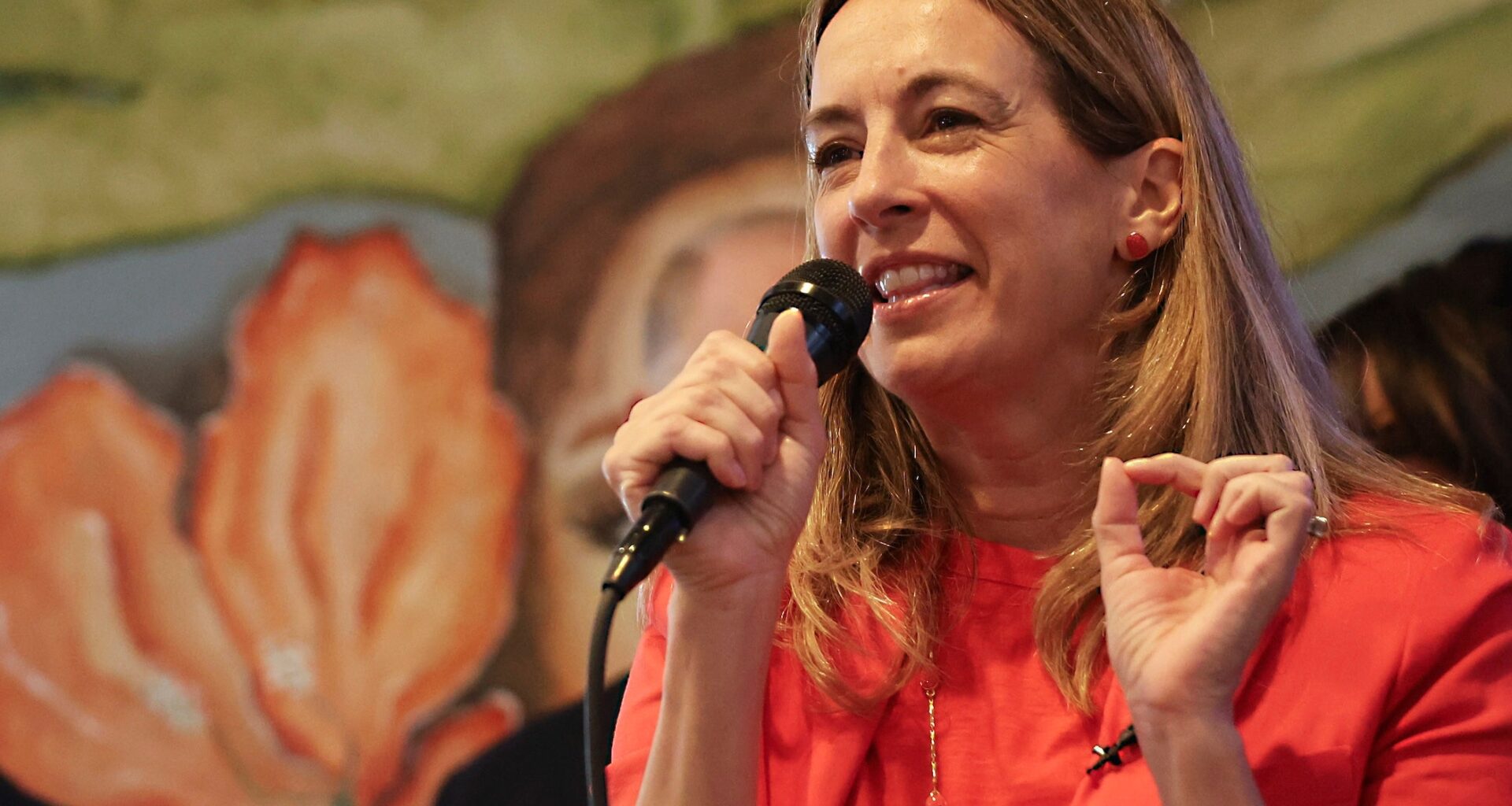Keeping New Jersey moving forward
Sherrill said improving NJ Transit is critically important. NJ Transit is the third-largest mass transit system in the nation and moves about 720,000 people across the state every day, on buses, trains and light rail.
“It’s been difficult for commuters across the state, in fact my husband is a commuter,” she said. “For years, it’s been a crapshoot sometimes, so as governor, I’m going to make sure we are pushing all of the people in our transit systems to maintain and improve how we move people around the state.”
Sherrill said she also wants to work on housing affordability. Home and rent prices in the Garden State have increased 50% over the past five years. According to the most recent data available, the median sales price of a single family home in Jersey has increased from $337,000 five years ago to $513,000 in 2024.
“I’m really going to push into transit-oriented development, to ensure that people are able to afford homes here in New Jersey,” she said, “That seniors are able to retire here and stay here to watch their grandkids grow up.”
Sherrill said she supports the ANCHOR property tax relief program and the Stay NJ program that will cut property taxes for homeowners 65 and older.
“Here in New Jersey, it’s really hard to afford to stay in your home on a fixed income,” she said. “You can budget for your retirement, but property taxes just go up every year. We need to stabilize that so seniors can stay here, see their grandkids grow and really provide the support that all of our families need.”
Protecting Constitutional rights
The U.S. Supreme Court overturned Roe v. Wade three years ago. According to the Center for Reproductive Rights, abortion is now illegal in 12 states, and the fight over abortion access is still taking place in some states. Sherrill said a woman’s right to choose and LBGTQ+ rights must be protected.
She said she has served her entire life and taken oaths on numerous occasions to uphold the Constitution for all citizens, including the most vulnerable.
“I think that’s a sign of a healthy community, when you care for vulnerable people and that’s something I’ll always do,” she said. “I don’t think that stands in contrast with my constant focus on lowering costs for families. I think a good governor will do both.”
She said her Republican opponent, Jack Chitterelli, has no plan to protect vulnerable residents and no specific plan to cut state government costs.
“He is just kind of barreling along with Donald Trump’s agenda, which is raising costs on everyone here in the Garden State,” she said.
Room for improvement
Sherrill believes the state can do better in supporting the state’s immigrant community. According to the Pew Research Center, 475,000 undocumented immigrants are living in New Jersey.
She said U.S. Immigration and Customs Enforcement raids have caused fear and confusion, and many Jersey residents are worried about neighbors and friends.
“Here in New Jersey, we’re going to follow the law and we’re going to follow the Constitution,” she said. “We’re going to make sure people feel safe in public, and we’re going to use our public safety officers to do just that.”
Sherrill said addressing climate change is also one of her goals.
New Jersey is one of the states most at risk from climate change, and the Trump administration has significantly cut resiliency programs along the shore. She said the governor’s job is to support resiliency efforts. She added that criminal justice reform in New Jersey is also a work in progress.
“We put programs in place but then we don’t check in on whether or not they’re working,” she said. “We’ve made some really good efforts on things like bail reform, but we really have to continue that these programs are still delivering the outcomes we want.”
Sherrill said that means instituting programs to make sure people charged with a crime show up for their court dates.
She said rules stopping underage use of marijuana have not been properly followed in some instances, and as a former federal prosecutor she would ensure that prosecutors have the tools they need to enforce the law and engage in community outreach programs to keep young people on track.

